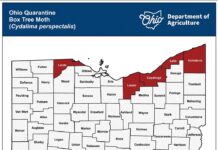The White House Office of Management and Budget rejected a proposal that would have essentially expanded the definition of “rural” to include larger areas, following widespread concerns about the suggested change.
Earlier this year, a committee tasked with reviewing the standards for metropolitan statistical areas suggested increasing the minimum population for a metropolitan area from 50,000 to 100,000. The office accepted public comments on the suggestion this winter and spring.
These areas are not technically meant to define “urban” and “rural,” but many agencies and groups use them as a way to classify counties and areas as rural or urban.
Researchers worried that the proposed change would make it harder for rural communities to get funding and for researchers to track what is happening in rural areas. They also said the proposal was based on an oversimplified view of what “metropolitan” means.
Those concerns sparked a sign-on letter by the Aspen Institute Community Strategies Group and Brookings Institute that garnered about 430 signatures from organizations, local governments and individuals, in addition to other public comments opposing the proposal.
After the public comment period ended in March, the standards review committee submitted a revised proposal to keep the current definition in place, a July 13 press release from the office said. The office went with the revision, which keeps the minimum metropolitan population at 50,000.
Issue
The sign-on letter estimated that areas in 250 counties would have been reclassified as nonmetropolitan, if that definition moved forward. Wyoming would have lost the only metropolitan areas it had under the proposed change. Mansfield, the largest city in Richland County, Ohio, and Parkersburg, West Virginia, are two cities that would have been reclassified.
While the Office of Management and Budget says the metropolitan statistical area definitions are only meant for statistical purposes, many federal programs use them to assign funding — for example, for Community Development Block Grants, or U.S. Department of Agriculture programs meant to fund rural communities.
Changing which areas are metropolitan or nonmetropolitan also would have changed rural statistics overnight, researchers said. That would make it harder to identify needs in rural areas or to see when good things are happening.
Decision
The committee recommended delaying action on the possible change until more research and analysis on the impact has been done. The office said in a July 16 Federal Register document it decided not to update the definition for now because there isn’t enough reason to raise the minimum population to 100,000 currently, and more research is needed.
The office received 734 comments on that recommendation, and 712 of the comments opposed it. While many of those comments mentioned concerns about funding and other non-statistical impacts the redefinition could have, the office did not consider those concerns in its decision.
“OMB establishes and maintains these areas solely for statistical purposes. … If these areas are used for program administration, OMB recommends structuring the use in a way that prevents any unintended disruption that may be caused by OMB’s regular review and revision of the standards,” the office wrote in the document.
The office also acknowledged the committee’s initial concern that the definitions of metropolitan and nonmetropolitan have not kept up with population growth. A March Brookings Institute analysis said this was the first time anyone has recommended updating the standards since they were put in place in a 1950 census.
The office said it will work with the standards review committee on more research and outreach on the issue before the 2030 standards update.










